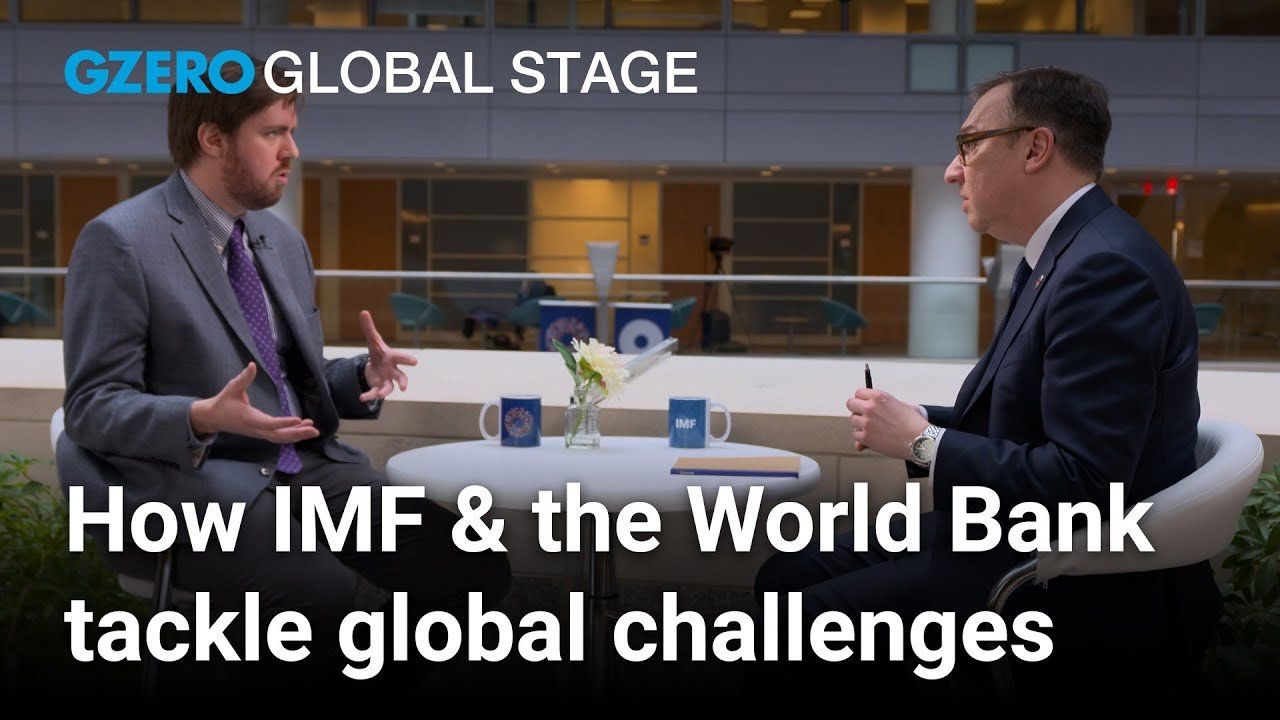Crisis Recovery
How to tackle global challenges: The IMF & World Bank blueprint

How to tackle global challenges: The IMF & World Bank blueprint | Global Stage

The International Monetary Fund and World Bank’s Spring Meetings in Washington have told a tale of two economies: In the developed world, inflation is falling, and recession looks unlikely. But many of the world’s poorest countries are struggling under tremendous debt burdens inflated by rising interest rates that threaten to undo decades of development progress. That means these key lenders of last resort have their work cut out for them.
The good news? There’s a proven model, as GZERO Senior Writer Matthew Kendrick discussed with Tony Maciulis at a Global Stage event while reporting on the meetings. Somalia, once the byword for a failed state, managed to implement massive reforms to its financial system to meet the guidelines of the IMF’s Highly Indebted Poor Countries Initiative.
“Because they met those guidelines — while still in a very fragile environment where they were fighting Islamic extremists in the country, dealing with semi-autonomous zones in the north — they managed to discharge 90% of their debt,” said Kendrick. “It's proof that even in very fragile countries, if, as the Somali finance minister said yesterday, you build these projects into nationally unifying efforts to build a better future, they can have tremendous success.”
Kendrick also cited comments from experts calling for the IMF and World Bank to change how they view humanitarian work more generally and not back away from countries amid war. “Conflicts are becoming a day-to-day part of our lives all over the world,” he says. “That means that the IMF and World Bank, in order to make progress on development, have to figure out ways to work with the institutions in these countries as they are also in conflict.”
Brazilian skiers, American ICE agents, Israeli bobsledders – this is just a smattering of the fascinating characters that will be present at this year’s Winter Olympics. Yet the focus will be a different country, one that isn’t formally competing: Russia.
Japanese Prime Minister Sanae Takaichi, president of the Liberal Democratic Party (LDP), appeals for a candidate during a street speech of the House of Representatives Election Campaign in Shintomi Town, Miyazaki Prefecture on February 6, 2026. The Lower House election will feature voting and counting on February 8th.
Japanese voters head to the polls on Sunday in a snap election for the national legislature’s lower house, called just three months into Prime Minister Sanae Takaichi’s tenure.
Think you know what's going on around the world? Here's your chance to prove it.